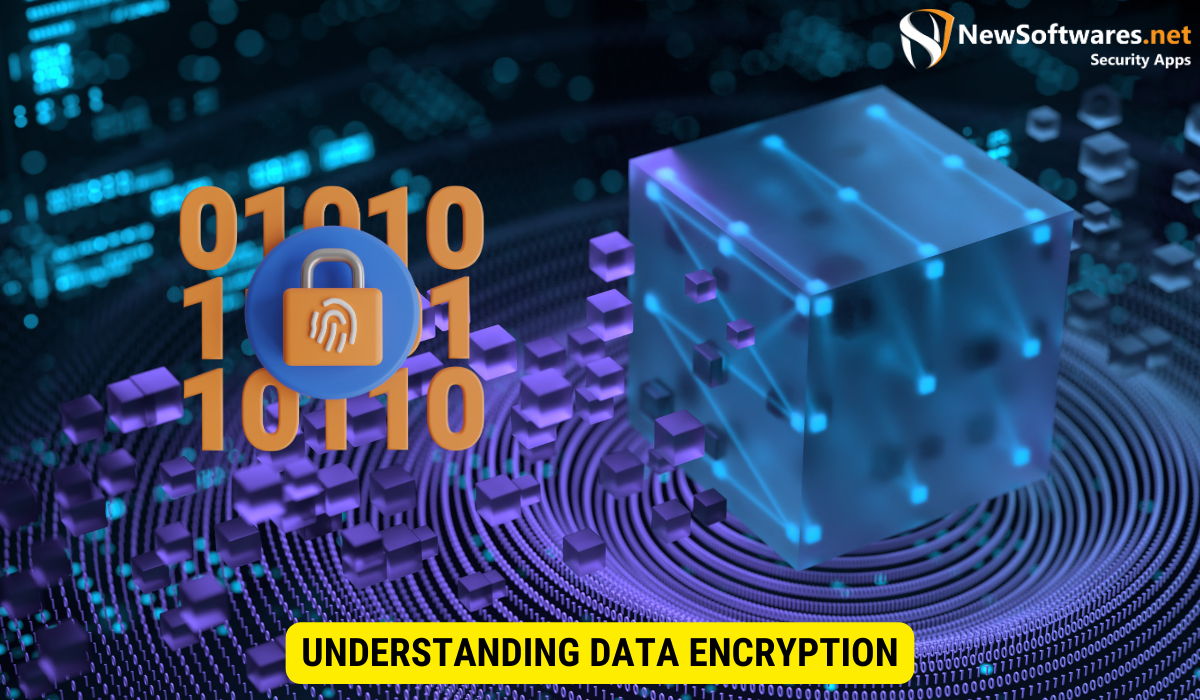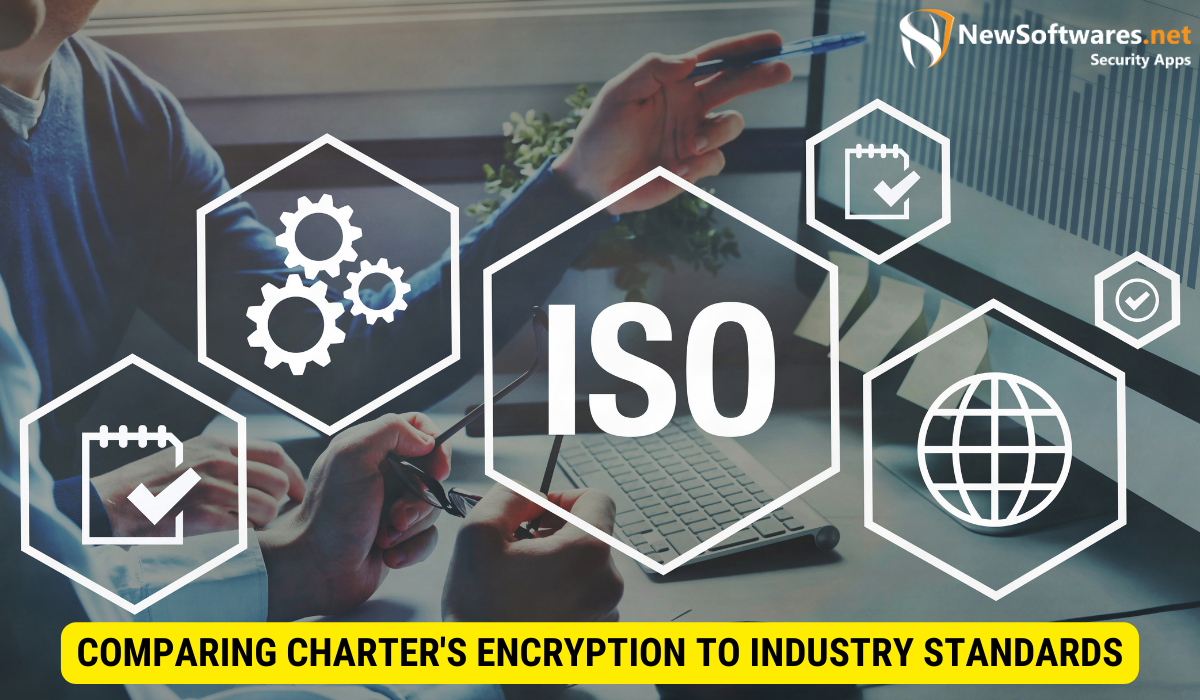Charter encrypts a wide range of customer data to ensure comprehensive protection. This includes personal details, payment information, communications data, and any other sensitive information transmitted or stored within Charter’s systems. Data encryption is a fundamental aspect of Charter’s approach to data security, and they employ robust encryption methods to safeguard customer information from potential threats.
In today’s digital age, data security is a top concern for individuals and businesses alike. With the increasing number of cyber threats, it is crucial to ensure that information remains confidential and protected from unauthorized access. Charter, a prominent telecommunications company, understands the importance of data encryption and has implemented robust measures to safeguard customer data.
Understanding Data Encryption

Before delving into Charter’s approach to data security, let’s first explore what data encryption entails. In simple terms, data encryption is the process of converting plain text into encoded ciphertext, making it unreadable by unauthorized individuals. Encryption algorithms use mathematical formulas to scramble data, and only authorized parties possessing the decryption key can decipher the information, ensuring its confidentiality.
What is Data Encryption?
Data encryption involves transforming data into an unreadable format to prevent unauthorized access. It provides an additional layer of safekeeping, especially when data is transmitted or stored in the cloud.
Data encryption is a complex process that involves several steps. Firstly, the data is divided into blocks, and each block is then encrypted using an encryption algorithm. This algorithm uses a unique key that determines how the data is scrambled. The encrypted data, known as ciphertext, appears as a jumble of characters that bears no resemblance to the original information.
Once the data is encrypted, it can be safely transmitted or stored. In order to access the encrypted data, the recipient must possess the corresponding decryption key. This key allows the authorized party to reverse the encryption process and retrieve the original information.
There are various encryption algorithms available, each with its own strengths and weaknesses. Some commonly used encryption algorithms include Advanced Encryption Standard, Data Encryption Standard, and Rivest Cipher . These algorithms employ different mathematical formulas and key lengths to ensure the security of the encrypted data.
Importance of Data Encryption
Data encryption plays very important role in protecting sensitive information, such as personal details, financial data, and intellectual property. By encrypting data, even if unauthorized individuals gain access to it, they would be unable to decipher the information, ensuring the privacy and integrity of the data.
With the rising frequency of cyber threats and data breaches, data encryption has become a fundamental requirement for organizations across various industries. It helps businesses comply with regulatory demands and safeguards their reputation by preventing unauthorized access to sensitive data.
Furthermore, data encryption is particularly important when data is transmitted over networks or stored in the cloud. Without encryption, data can be intercepted and accessed by malicious actors, leading to potential data breaches and financial losses. By encrypting data, organizations can mitigate these risks and ensure the confidentiality of their information.
It is worth noting that data encryption is not a one-size-fits-all solution. Different types of data may require different encryption methods based on their sensitivity and the level of protection needed. Organizations must carefully assess their data security needs and implement appropriate encryption measures to safeguard their valuable information.
At the end, data encryption is a critical component of modern data security. It provides a tough defense against unauthorized access and ensures the privacy and integrity of perceptive information. By understanding the importance of data encryption and implementing effective encryption measures, organizations can protect their data from potential threats and maintain the trust of their customers.
Charter’s Approach to Data Security
Recognizing the significance of data security, Charter has stringent security policies and encryption techniques in place to protect customer data from potential threats.
At Charter, the security of customer data is of utmost importance. The company understands the trust that customers place in them and has taken extensive measures to safeguard their data. Charter has implemented a comprehensive set of security policies that are designed to maintain the integrity of customer data.
Charter’s Security Policies
Charter prioritizes the security of customer data and has implemented a comprehensive set of security policies to maintain its integrity. These policies define the organization’s standards for data protection, including encryption requirements, access controls, and incident response protocols.
Charter’s security policies are meticulously crafted to address various aspects of data security. They outline the procedures and guidelines that employees must follow to make sure the confidentiality, integrity, and availability of customer data. These policies cover a range of areas, including data classification, data retention, and data disposal.
One of the key components of Charter’s security policies is the encryption requirement. The company mandates that all sensitive customer data must be encrypted both at rest and in transit. This ensures that even if unauthorized persons gain access to the data, they will not be able to decipher its contents.
In addition to encryption, Charter’s security policies also emphasize the importance of access controls. The company has implemented strict access controls to limit access to client data only to authorized personnel. These controls include strong authentication mechanisms, role-based access controls, and regular access reviews.
Furthermore, Charter’s security policies also outline the incident response protocols that the company follows in the event of a security breach. These protocols ensure that any security incidents are promptly detected, contained, and mitigated. Charter has a dedicated incident response team that is trained to handle such situations effectively.
Charter’s Encryption Techniques
Charter employs industry-leading encryption techniques to ensure the confidentiality of customer data. These techniques involve using advanced encryption algorithms and strong encryption keys to transform data into ciphertext. Charter also regularly updates and enhances its encryption methods to stay ahead of emerging threats.
Charter understands that encryption is a critical component of data security. The company utilizes state-of-the-art encryption algorithms that are known for their robustness and resistance to attacks. These algorithms ensure that customer data remains safe even if it falls into the wrong hands.
In addition to the encryption algorithms, Charter also places great emphasis on the strength of encryption keys. The company uses long and complex encryption keys that are virtually impossible to crack. By using strong encryption keys, Charter ensures that customer data remains protected against brute-force attacks.
To stay ahead of emerging threats, Charter regularly updates and enhances its encryption methods. The company closely monitors the latest developments in the field of encryption and implements any necessary changes to its encryption techniques. This proactive approach ensures that Charter’s encryption methods remain robust and effective in the face of evolving security threats.
In conclusion, Charter’s approach to data security is comprehensive and thorough. The company’s stringent security policies and industry-leading encryption techniques provide customers with the assurance that their data is in safe hands. By prioritizing data security, Charter demonstrates its commitment to protecting customer privacy and maintaining the trust that customers have placed in them.
How Charter Encrypts Data?
Now, let’s delve into how Charter implements data encryption to protect customer information.
Encryption Process at Charter
Charter’s encryption process begins with identifying the data that requires protection. This includes personal data, financial records, and any other sensitive information transmitted or stored within Charter’s systems. Once identified, this data is encrypted using state-of-the-art encryption algorithms.
Types of Data Encrypted by Charter
Charter encrypts a wide range of data to ensure comprehensive protection. This includes customer account details, payment information, communications data, and any other personally identifiable information stored in their systems.
Evaluating the Effectiveness of Charter’s Encryption
When it comes to data encryption, it is essential to evaluate its effectiveness and the level of security it provides. Let’s assess the strengths and potential weaknesses of Charter’s encryption methods.
Strengths of Charter’s Encryption Methods
Charter employs robust encryption methods that meet industry standards, ensuring the security and secrecy of customer data. Their encryption algorithms and encryption keys are designed to resist attacks from sophisticated hackers, minimizing the risk of unauthorized access to sensitive information.
Potential Weaknesses and Risks
While Charter’s encryption methods are highly secure, no system is entirely invulnerable. The risks associated with data encryption include the potential compromise of encryption keys, the emergence of more advanced attack techniques, and the human factor—such as careless handling of encryption keys. Charter continually monitors these risks and takes proactive measures to mitigate them effectively.
Comparing Charter’s Encryption to Industry Standards

As a leading player in the telecommunications industry, Charter’s data encryption measures are often compared to industry standards. Let’s see how Charter stacks up against its competitors in terms of data security.
How Charter Stacks Up Against Competitors?
Charter adheres to industry best practices when it comes to data encryption. Their encryption techniques are on par with or even surpass those employed by other telecommunications companies. Charter’s commitment to data security positions them as a reliable provider for customers seeking robust protection for their sensitive information.
Future of Data Encryption at Charter
Charter recognizes the ever-evolving threat landscape and is continually investing in research and development to enhance its data encryption methods. Through collaborations with industry experts and continuous innovation, Charter aims to stay ahead of emerging threats and provide customers with state-of-the-art data security.
Key Takeaways
- Charter recognizes the significance of data encryption and has implemented robust security measures to protect customer data.
- Data encryption involves transforming data into an unreadable format, ensuring confidentiality and preventing unauthorized access.
- Charter employs industry-leading encryption techniques and regularly updates its methods to stay ahead of emerging threats.
- No system is entirely invulnerable, and Charter acknowledges potential weaknesses and takes proactive steps to mitigate risks.
- Comparisons with industry standards reveal that Charter’s encryption measures align with or surpass those of other telecommunications companies.
FAQs
Does Charter encrypt all customer data?
Yes, Charter encrypts a wide range of customer data, including personal details, payment information, and communications data, to ensure comprehensive protection.
Can data be decrypted without the authorized decryption key?
No, data that has been encrypted using robust encryption algorithms and strong encryption keys can only be decrypted with the authorized decryption key, making it almost impossible for unauthorized individuals to decipher the information.
What happens if Charter’s encryption methods are compromised?
Charter takes the security of customer data seriously & has measures in place to address potential compromise of its encryption methods. These include incident response protocols, security audits, and enhancements to strengthen their encryption techniques.
Are Charter’s encryption methods compliant with industry standards and regulations?
Yes, Charter complies with industry standards and regulations governing data encryption. Their encryption methods align with the best practices in the telecommunications industry, ensuring data security.
Does Charter plan to further enhance its data encryption methods?
Yes, Charter recognizes the dynamic nature of cyber threats and continually invests in research and development to enhance its data encryption methods. They aim to stay at the forefront of data security and provide customers with state-of-the-art protection.
Conclusion
Data encryption forms an integral part of Charter’s approach to protecting customer data. Through rigorous security policies, advanced encryption techniques, and a promise to staying ahead of emerging threats, Charter prioritizes the confidentiality and integrity of sensitive information. While no system is entirely invulnerable, Charter’s encryption methods align with industry standards and position them as a reliable provider of secure telecommunications services.
